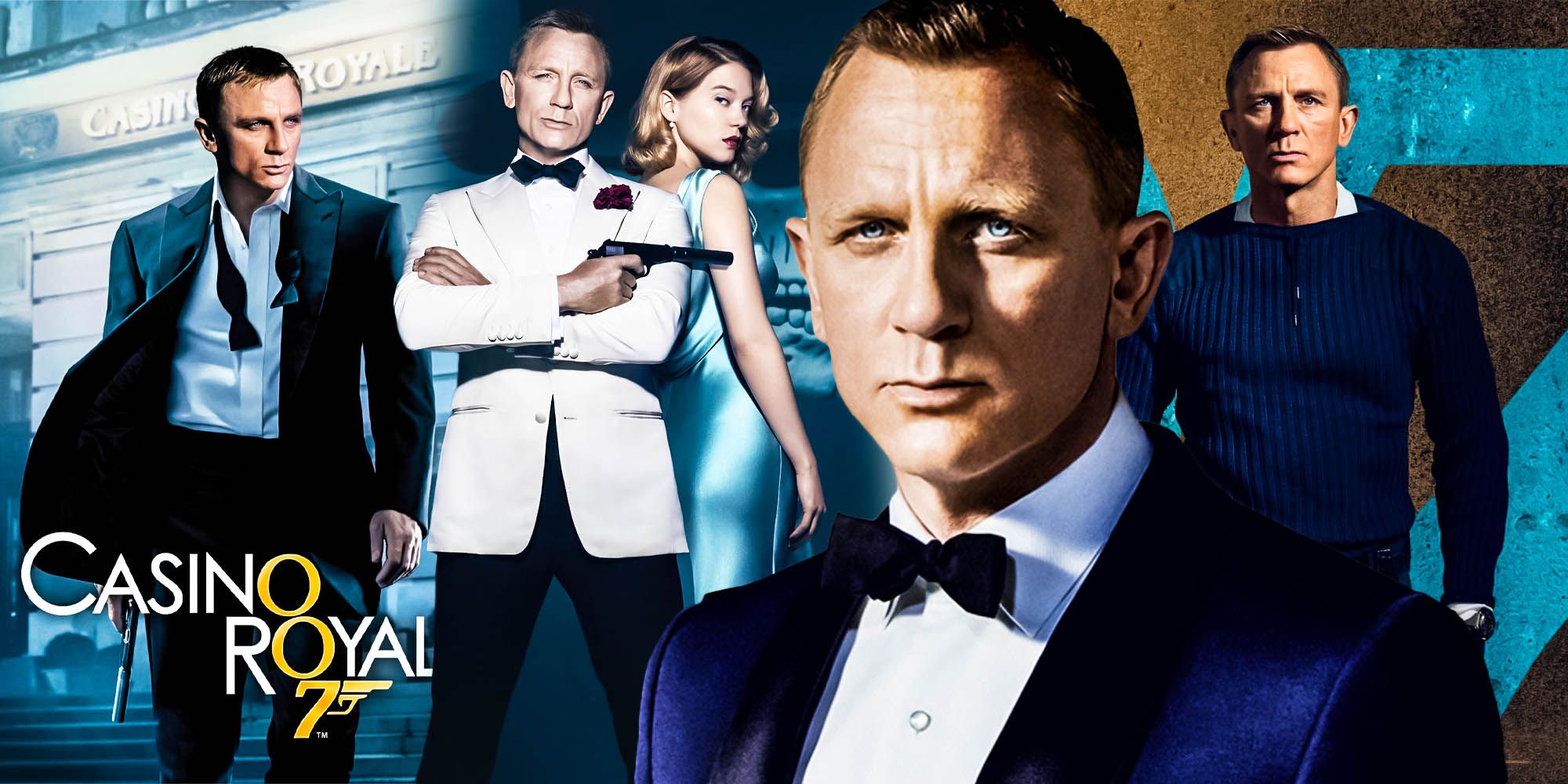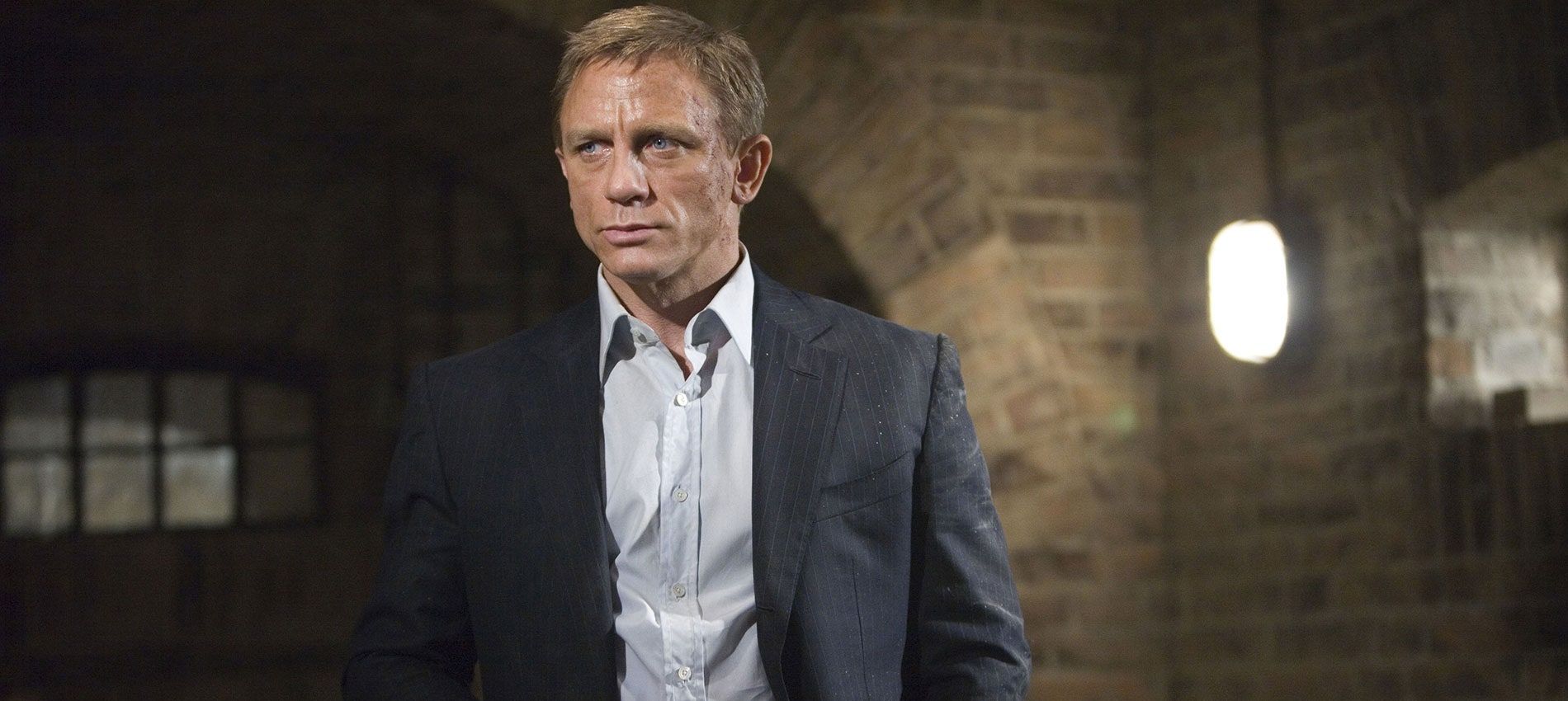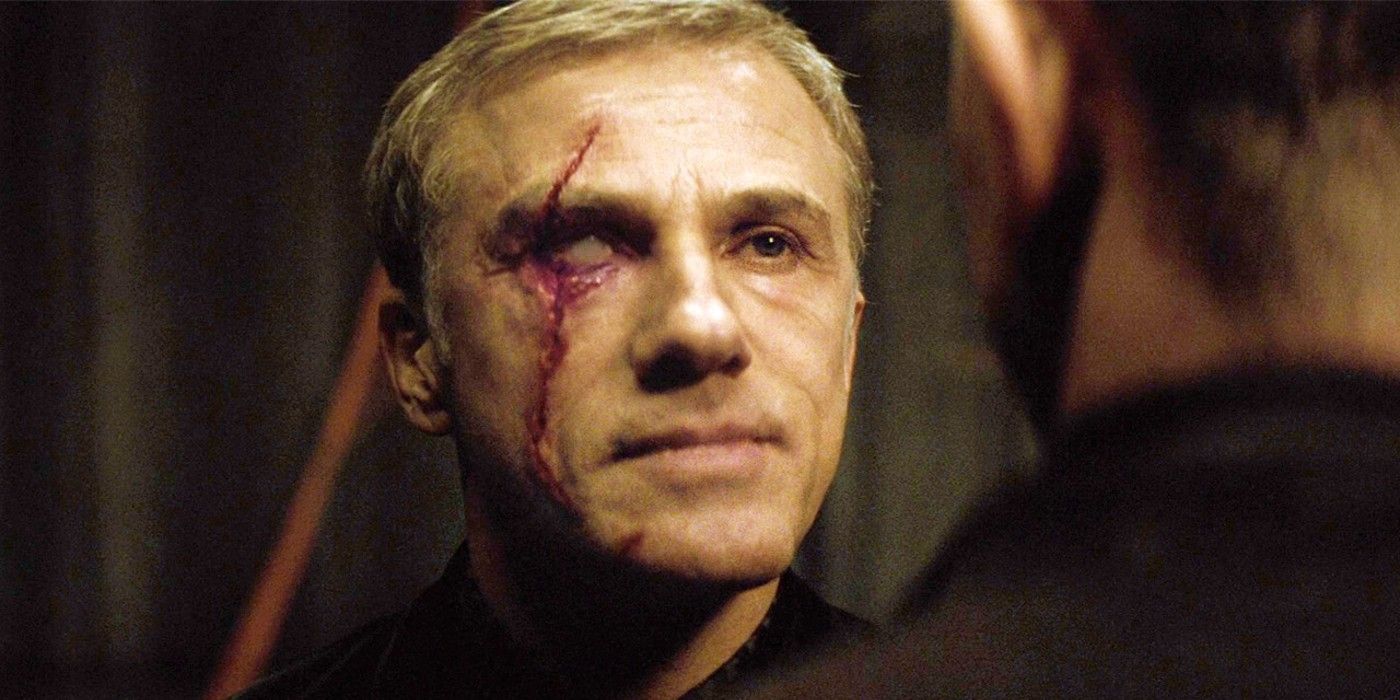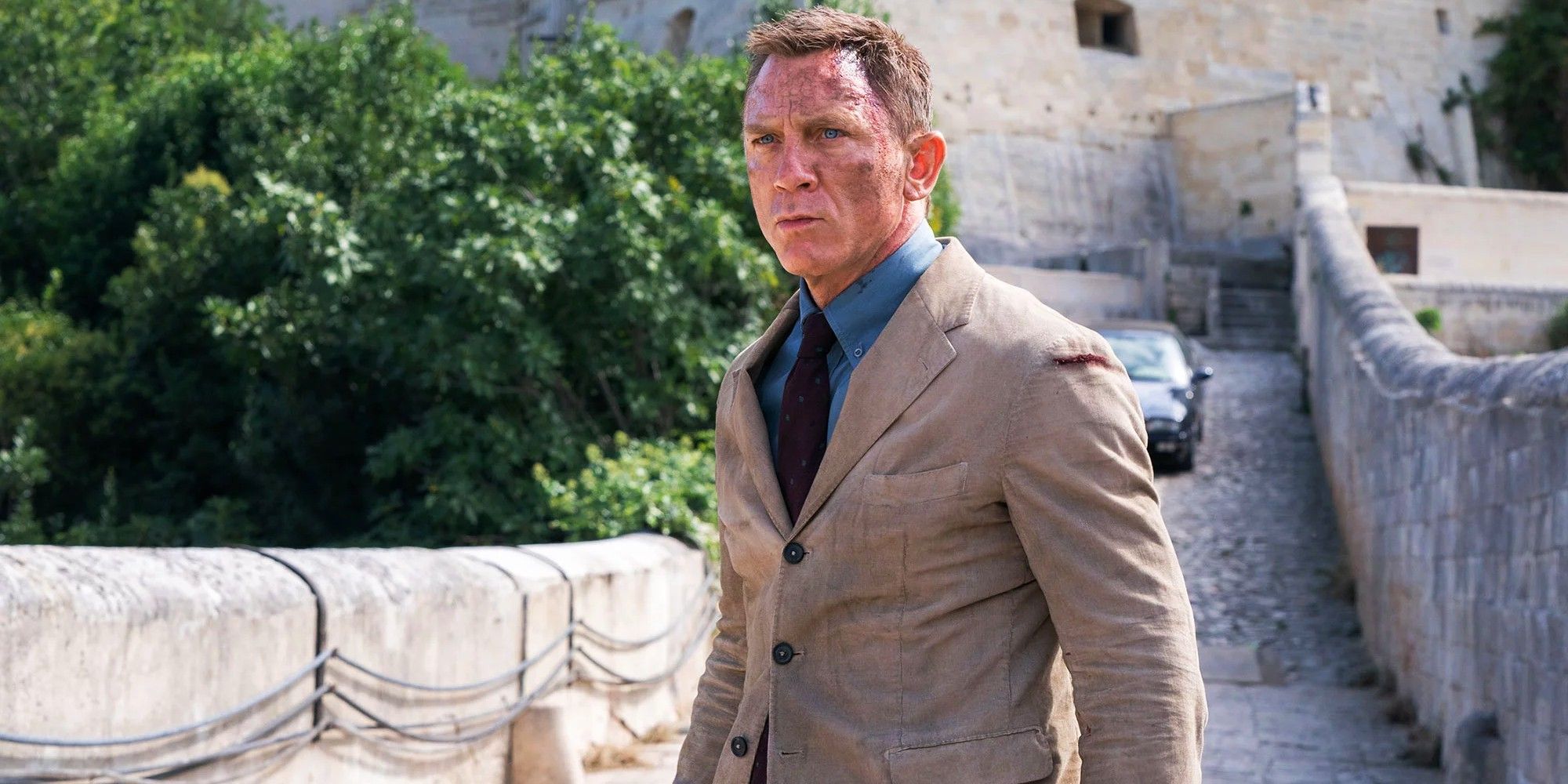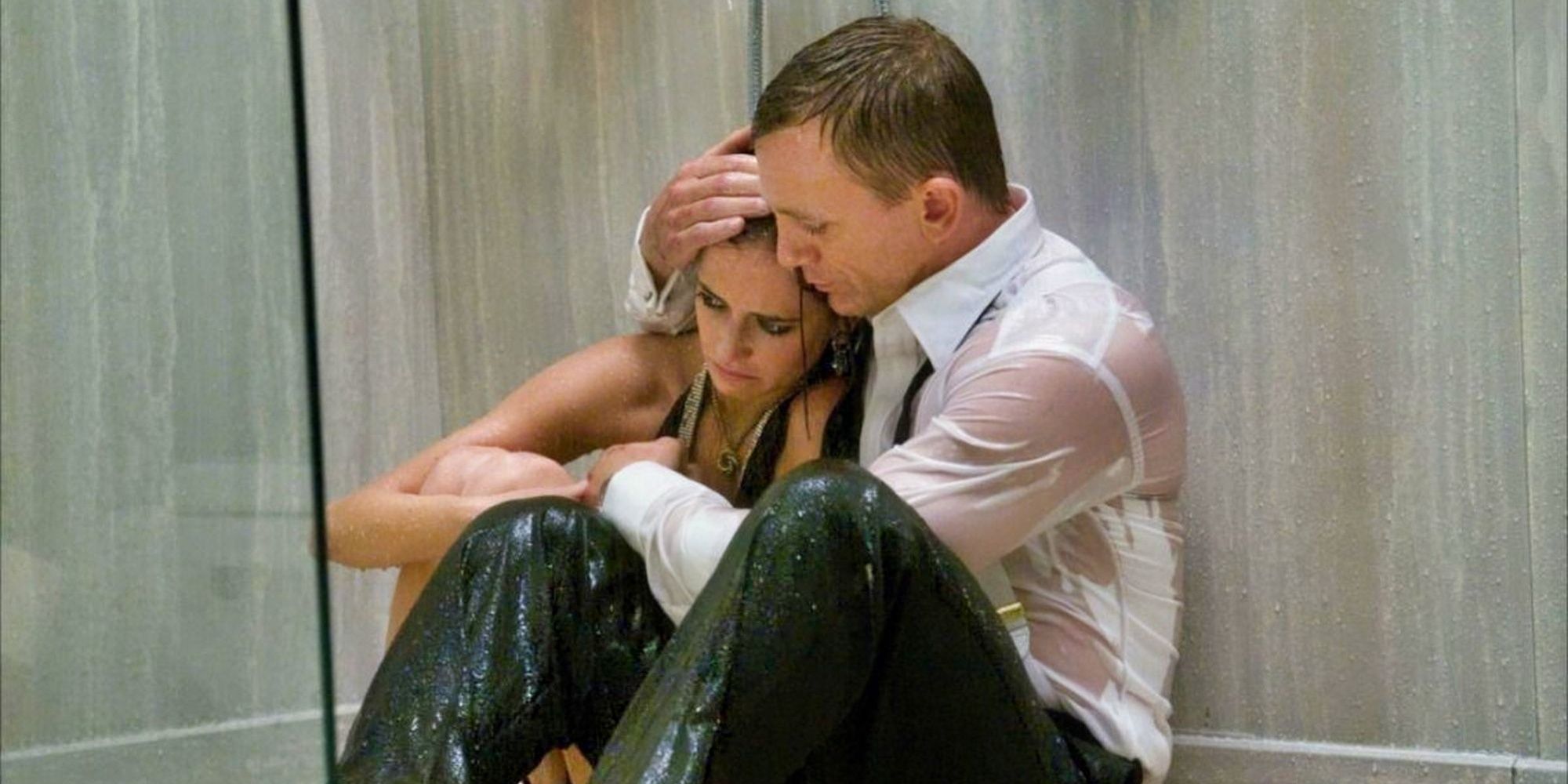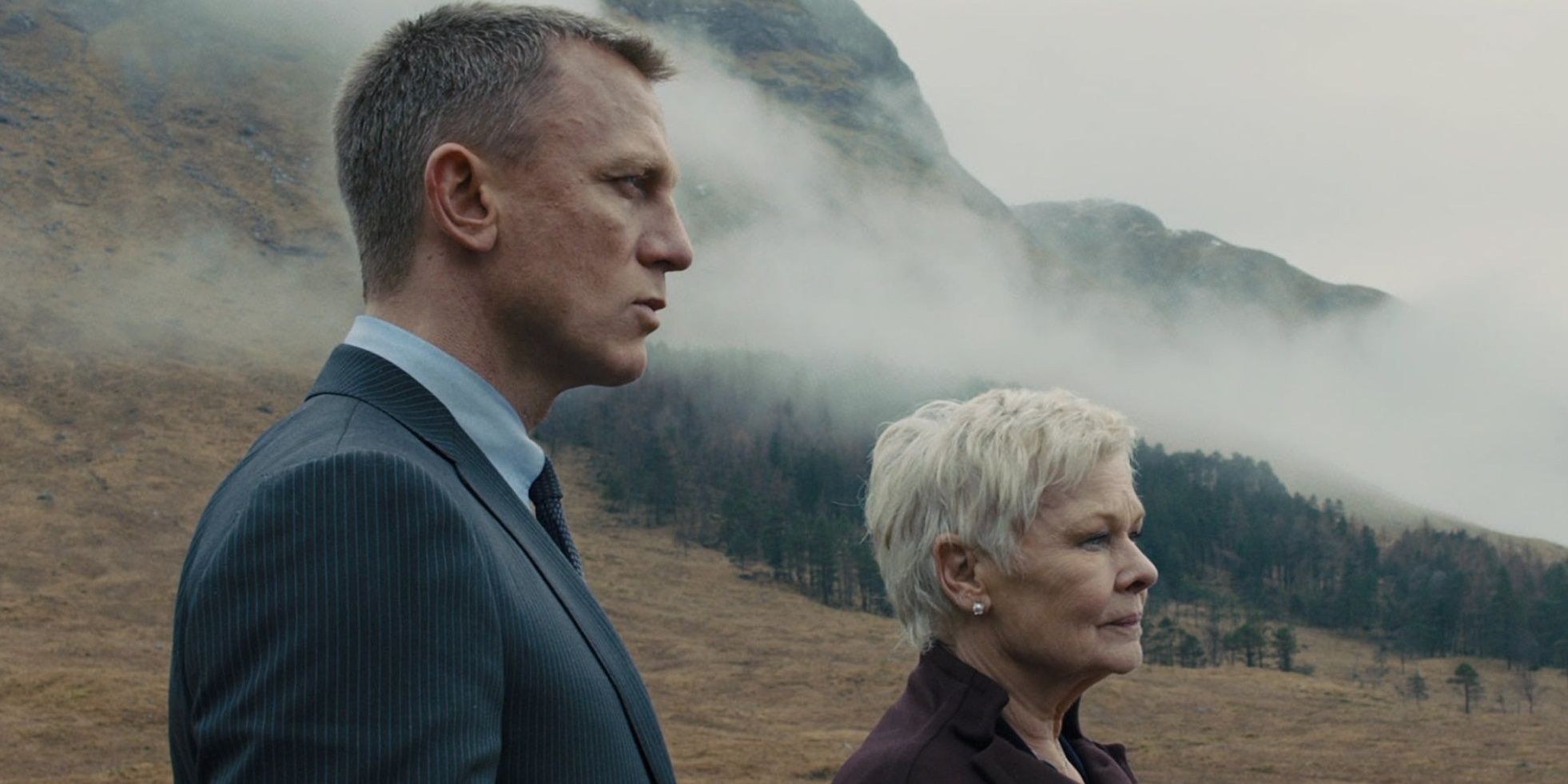After 15 years and five movies, Daniel Craig's 007 era came to an end with No Time To Die, but how do his James Bond movies rank next to one another? Craig brought the franchise back to life in 2006 with Casino Royale, following on from the ignominious ending to Pierce Brosnan's tenure with 2002's Die Another Day. Although a divisive choice at the time, Craig has not only proved any doubters wrong, but established himself as one of the all time great Bond actors.
While Sean Connery may always be the definitive Bond, Craig's era has defined what 007 is and can be. His five movies, which have had four different directors, have given James Bond a true arc and continuity between movies, as well as grounding the series, shifting it away from the campier tone of previous installments and putting a greater focus on thrilling, intense action sequences.
Craig's Bond movies have, like most of his predecessors, had some degrees of inconsistency, ranging from entries that arguably rank among the very best in the franchise to some of its very worst. Craig himself has had an uneasy time, with the actor even considering quitting as Bond after Spectre due to how intensive filming was, before eventually agreeing to return for the 25th Bond movie, which ended up being No Time To Die. Now he has gone for good this time, here's how his Bond movies rank from worst to best.
5. Quantum Of Solace
Following on from Daniel Craig's thrilling debut as James Bond, Quantum of Solace always had a tricky task on its hands to maintain that level. That was only made harder by the 2007-08 Writers Guild of America strike, which resulted in an unfinished screenplay that director Marc Forster and even Craig himself ended up working on to get things finished. Unfortunately, those issues end up being evident in the movie itself. The story, unsurprisingly, is messy and incohesive: it jumbles together a story of a revenge-driven Bond alongside his relationship with M (Judi Dench), an environmentalist villain plot, and setting up grander plans for Quantum to become overarching franchise villains (which would later be scrapped in favor of SPECTRE).
Those elements never quite mesh, despite Craig's best efforts at capturing the angry, brutal Bond. That tone arguably swings too far the other way, stripping the movie of any sense of fun, and even the action suffers from too many cuts. It's not all bad - again, Craig is great, and his relationship with M in particular is well-developed here that leads nicely into Skyfall - and, stripped of the 007 franchise, it might be an average action flick, but it's not enough for the world of Craig's Bond.
4. Spectre
Continuing the trend of "one good, one bad" that marks Daniel Craig's James Bond movies, Spectre is once again a movie that perhaps suffers from too many ideas, and attempts to continue pushing the franchise forward while connecting to its past. With the rights to SPECTRE regained, that means the narrative of Spectre has to do a convoluted job of retconning Quantum into the organization, and introducing Ernst Stavro Blofeld (Christoph Waltz) as the overarching big bad. These elements show both issues with such a long-running series and with giving Bond an arc, as the web begins to feel unnecessarily convoluted and the ideas don't tie together, with Blofeld in particular something of a letdown, never becoming the iconic villain he deserves to be and with reveals about his and Bond's pasts that is best simply forgotten about.
This is the movie that almost forced Craig to quit being James Bond even before No Time To Die, and sadly that shows on screen, as he comes off as a man who is not only tired of this, but perhaps even a little bored. Spectre is still a level above Quantum of Solace though, with the returning Sam Mandes crafting some exciting action sequences, including a stunning opening scene in Mexico, and Léa Seydoux making for an intriguing new entry into the Not-A-Bond-Girl ranks.
3. No Time To Die
Warning: Contains SPOILERS for No Time To Die.
Perhaps fitting for a 007 whose movies have been inconsistent, Daniel Craig's final James Bond film is a middle-of-the-road entry for his run, going out not quite with a bang nor a whimper. Craig, knowing it's his final entry, feels more invigorated here than he did in Spectre, and the fact it is his ending gives him more notes to play; No Time To Die is one of his best, most fully-rounded performances as Bond, because it encompasses his entire arc and runs the full gamut from cold, ruthless killer to the spy who learned to love.
No Time To Die does have some real issues, not least pacing, ignoring the warning of its own title, and instead going with its preferred mantra of having "all the time in the world," there's a bloated runtime coming close to three hours that could (and should) have been trimmed down further in the editing room. The specters of both Spectre and SPECTRE loom over it as well; Bond is forced to deal with both elements, which means forcing Blofeld into the narrative alongside a new villain, Lyutsifer Safin (Rami Malek), and the collision of those elements makes the story needlessly complicated. Safin himself feels like a Bond villain leftover from a bygone era; with his secret lair, deathly garden, scarred visage, and overwrought plan to destroy the world and remake it in his image, it feels like a regression for Craig's Bond era.
And yet, for all its flaws, No Time To Die comes through in the end. The continuity that hurts its story also aids its character work, themes, and overall emotional resonance. There are few Bond movies more poignant or tear-jerking than this one, and that stems not only from Craig's complete performance, but how it pulls in elements of his other movies - most notably Casino Royale and Skyfall - to bring his arc full circle. That helps the full movie, too: the scenes with M (Ralph Fiennes) and Bond carry such a sense of weight and history that you forget he's not been there since the beginning; the introduction of Bond's daughter is a twist that re-defines what Bond will fight for and how far he'll go, and combined with his relationship with Madeleine Swann it beautifully sets up his ending.
Directed by Cary Joji Fukunaga, the action sequences are often breathless and kinetic, and pack a punch that some of the lesser entries had. There's also a movie-stealing appearance from Ana De Armas as Paloma, who is so good and feels like such a breath of fresh air that she must return in either James Bond 26 or a spinoff, reboot logic be damned. But ultimately it all comes back to Craig, and the decision to do what no other 007 movie has done: kill James Bond. It's a decision that could have killed the whole franchise along with him, but because of how perfectly it wraps up his arc, and how much his sacrifice means to him and those he loves, then it really becomes the only ending possible for him.
2. Casino Royale
The movie that brought James Bond back and introduces viewers to Craig's version, Casino Royale remains fresh even today, with a whole new take on Bond that set the template and standard for much of what was to come, and will likely still be helping to define the franchise in James Bond 26's reboot and beyond. There was a lot going against Casino Royale: Craig wasn't the most popular pick, the franchise was stuck in the past, and new-spies-on-the-block like the Jason Bourne movies had raised the game. Casino Royale, then, proved not only that Bond could still compete, but that on its day it could be better than anyone.
Giving James Bond an origin story after 20 movies and over 40 years on screen is no easy feat, but Craig and director Martin Campbell do it with style. This is a complete reinvention of the character - gone are most of the hallmarks of the past, from the gadgets to the comedy - and instead audiences meet a rough, raw, and intense Bond who feels unlike any other. Craig is great right from the off, melding his steely blue-eyed gaze and license to kill with moments of real vulnerability, especially as he opens himself up to Vesper Lynd (Eva Green). Their relationship not only shapes the entire movie, leading to one of the most complex and emotional in the franchise's history, but the rest of Craig's arc too as he has to get revenge, learn to move on, and ultimately come to close the door on his past with a sacrifice that nods back to her own death.
Casino Royale also has an all time Bond villain, too, thanks to Mads Mikkelsen's Le Chiffre. He mixes a real sense of cool and charm with sheer creepiness (the eye bleeding feels like a gesture towards the past, without getting too silly), yet his danger is also nicely complemented by the fact he isn't a man at the top or a larger than life villain who can end the entire world with the press of a button, allowing for a (relatively) more grounded and realistic James Bond movie villain who makes for a perfect foil to Craig's colder, edgier, and overall tougher 007. The action sequences are sublime, dragging the franchise not only kicking and screaming but also punching and parkouring into the 21st Century.
1. Skyfall
Casino Royale brought James Bond movies back and gave Daniel Craig the platform to build upon, but it was Skyfall that truly perfected the form. Released in 2012, marking the 50th anniversary of the James Bond franchise, Skyfall is an even greater feat than the 2006 film. Because of its unique position, then this is an entry that has to somehow celebrate the past - one that much of Craig's 007 era had been happy leaving behind - while still embracing the future, setting up further installments, and connecting to the ongoing story arc, and delivering its own satisfying narrative. Somehow, it delivers on all of that and then some.
Everything in Skyfall is a delicate balancing act. It finally introduces key franchise characters and elements - Q (Ben Whishaw), Miss Moneypenny (Naomie Harris)- but gives them a modern twist that never falls back on tired cliches. With a plot that sees villain Silva (Javier Bardem) coming for revenge on M, then it's a movie that is all about reckoning with the past and the weight of history: of M, of Bond, of MI6, and of the whole franchise. It could have buckled under the strain of all that, but instead Skyfall soars; it takes those elements and uses them for some serious introspection of who Bond is and where he fits into an ever-changing world, ultimately providing the satisfying answer that it still needs 007.
Almost everything in Skyfall is the James Bond franchise working at its best. The relationship between M and Bond is beautifully portrayed and speaks to one of the saga's most important pairings, giving it a depth not seen before or since. Silva is an ideal blend of what Bond villains have been and should be; over-the-top, fun, yet chilling when he needs to be. Shot by Roger Deakins, be it the moody Scottish highlands or the majesty of Macau, there's an astonishing use of light, color, framing, and setting here that makes it the best looking Bond movie ever made. Even its titular song, performed by Adele, is one of the very best, a powerful ballad that gets to the tragedy of the character.
Craig's performance here is a little more restrained than his other outings, but that's necessary given all that is going on around him, and he still delivers the goods when called upon. That goes for the action stakes, which are again brilliantly shot and stunningly choreographed, but also the more quieter, more emotional moments. Ultimately this is a movie that takes Bond apart and gets to the very core of both the franchise and the character, and it results in a movie that is gorgeous, haunting, and celebratory, encompassing everything that makes Bond so beloved. It's near-impossible to define James Bond in just a single movie, but if any film can lay claim to doing so, it's Skyfall.

